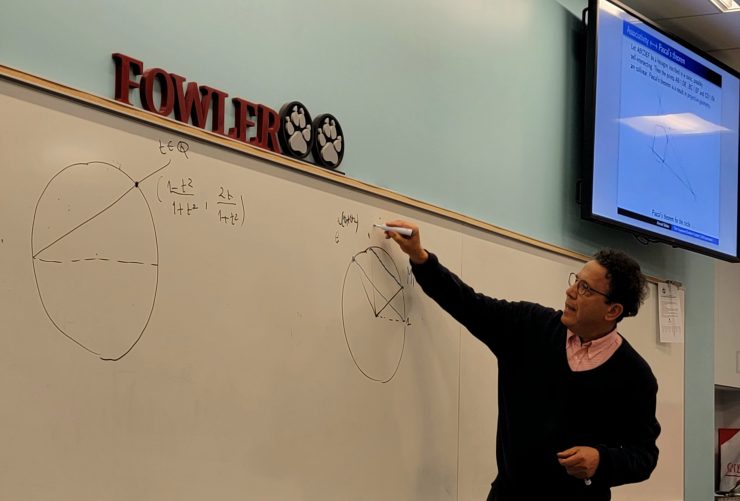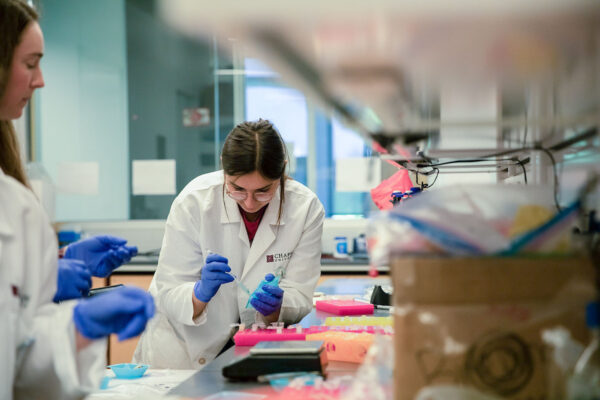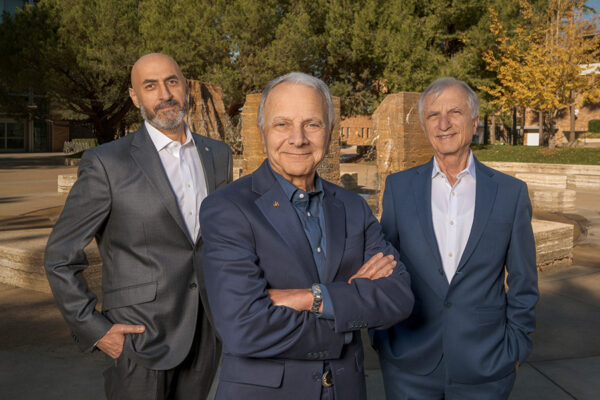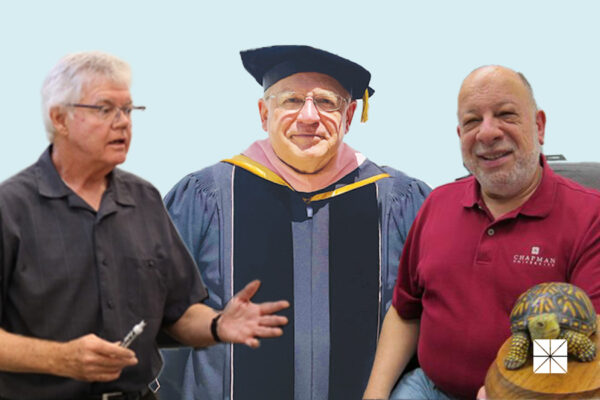Human consciousness is widely considered a philosophical concept, but what can mathematics and physics tell us about it?
Chapman University is offering a unique way to examine that and other concepts with its Doctor of Science in math, philosophy and physics (MPP).
The three-year program, which confers a Ph.D.-equivalent degree, emphasizes the connection between mathematics, philosophy and the physical sciences. Each candidate chooses a primary and secondary discipline. The program offers fellowships to fully fund a number of newly admitted students each year.
Ben Faltesek developed a strong interest in philosophy while getting his bachelor’s degree in history. He was so hooked that he got a master’s in the subject and is in the first cohort of Chapman’s MPP program.
“I have a very philosophical mindset, wanting to understand why things are the way they are,” he says.
At a recent philosophy conference, he met Professor Marco Panza, who thought Faltesek would be a good fit for Chapman’s new program and encouraged him to apply.
The program appealed to Faltesek and fit his academic background — he did doctoral work in philosophy after getting his master’s. He liked that the new program didn’t require taking a lot of courses and that he could start working on his dissertation right away.
“It’s also a good setting for me because the program is interdisciplinary between math, physics and philosophy and my specialization is in philosophy of mathematics,” says Faltesek, who is also teaching a logic course.
In his dissertation, Faltesek is addressing what it means for mathematics to be necessary.
“Before we can hope to answer questions such as, ‘Could 2 + 2 = 7?’ we need to know how possibility and necessity apply to mathematics,” he says.
Some challenging questions that have resisted answering within a specialty could be solved with an interdisciplinary approach, he says. He is looking forward to getting more exposure to math and physics.
“This program wants us to do something significant,” Faltesek says. “You have to support students to make that happen, and the program is trying to do that.”
The program is research-heavy, with minimal classroom instruction, according to MPP Program Coordinator Lisa Beesley. Each doctoral candidate works closely with an advisor to produce high-quality, competitive research in their primary discipline that also spans their secondary discipline.
The program is designed to form open-minded scholars in the three interconnected disciplines who can work inside or outside academia, Panza says.
“When you have an open mind, then you can do a lot of things,” he says. “A philosopher who is aware of scientific development, at least in mathematics and physics, can look at their work from another point of view and perhaps look for a new solution to a problem.”
Panza says the program’s interdisciplinarity is attractive to prospective candidates, as well as requiring a master’s degree in math, philosophy, physics or a related field. Many students who have completed a terminal master’s degree at another university and are looking to get a doctorate might be interested to join the MPP program.
The program includes a seminar each Friday with speakers from Chapman and other universities in the U.S. and abroad. Panza says Chapman participants could include the Institute for Quantum Studies and other research institutes.
“We wanted students to be exposed to other perspectives and meet other scholars,” he says.
Additionally, program organizers are holding their first conference on philosophy and science Jan. 30-Feb. 2, titled “Is Philosophy Useful for Science, and/or Vice Versa?”
Panza says the program’s goal is to create a synergy and community among people in the three disciplines.
“We do not just teach philosophy, but we teach philosophy in connection with mathematics, with physics, with the economy, with politics,” he says.




